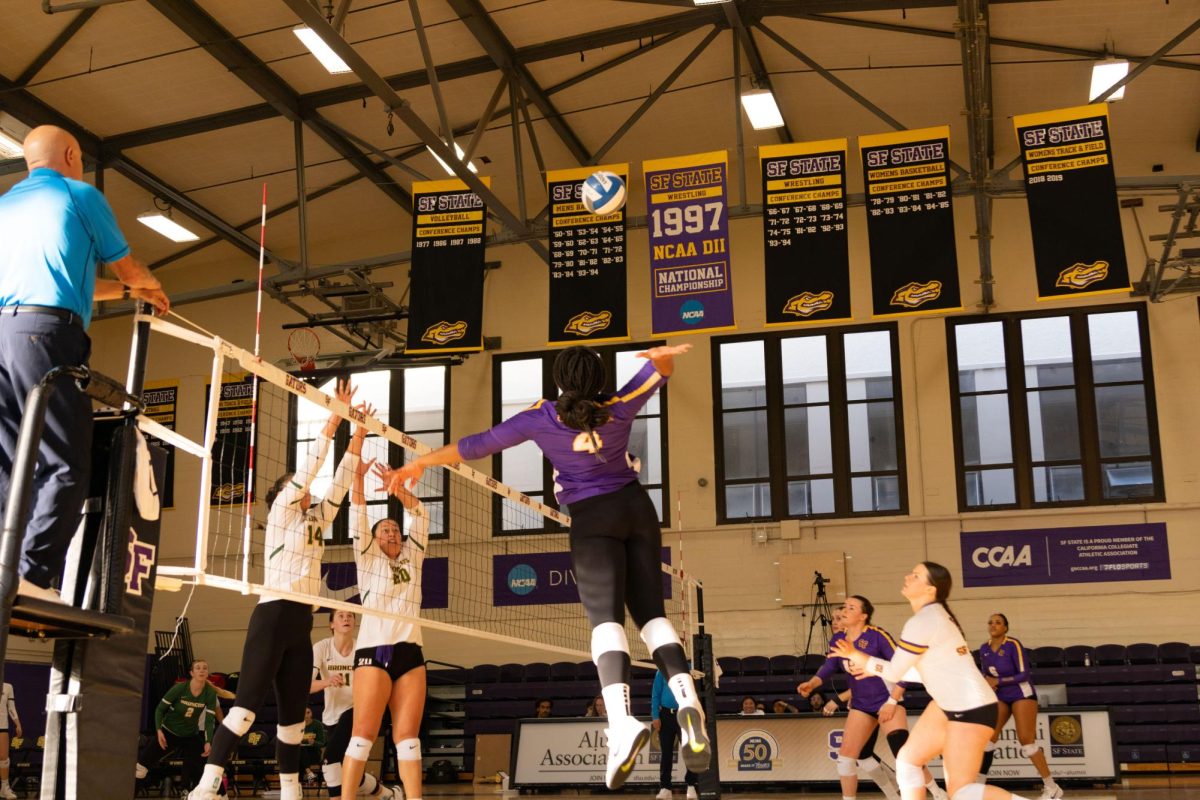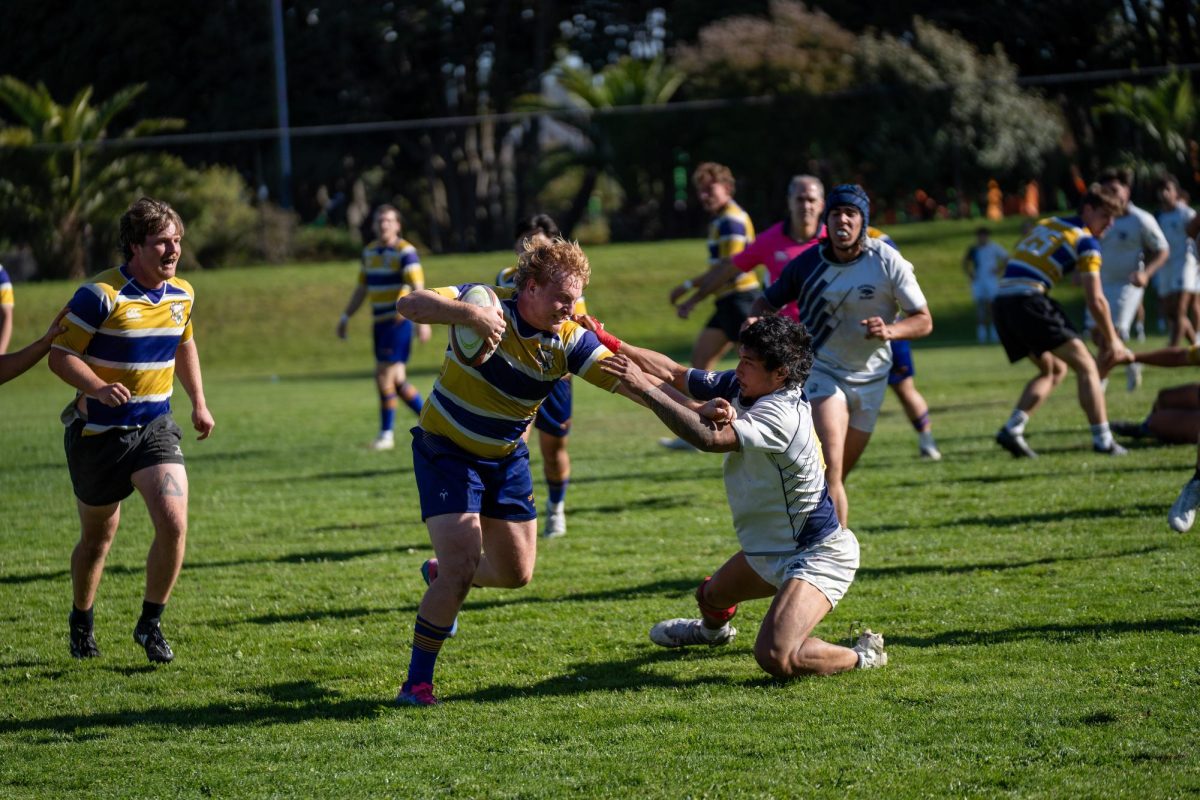The grueling hits, furious pace and overall physical exertion rugby players put forth is immense, but despite the sweat and bruises, it isn’t considered an NCAA sport.
Founded in 2005, SF State’s Gators rugby football club has been trying to make it into the NCAA since the club’s inception. The team is currently in the Division II Collegiate Rugby Conference, and club president Tristan Hayter believes the pieces of the puzzle are just waiting to be put together.
“This has been an ongoing thing. We are all doing everything we can to get this sport nationally recognized. And next to soccer, it’s the most played sport in the world,” Hayter, 22, said.
According to the Economic Impact Report on Global Rugby published by the International Rugby Board, more than 5 million people play rugby in more than 117 countries. Participation increased 350 percent between 2004 and 2011.
“Honestly it’s the mindset of the U.S. as a whole. Rugby is popular all across the world like soccer. And like soccer, rugby is slowly but surely growing in popularity. Like football and baseball, it will be recognized,” said Jake Patricio, junior and co-captain of the SF State rugby football club.
The club is currently undefeated in Division 1-AA in the Northern California Rugby Football Union. The team practices at Balboa Park every Monday, Wednesday and Friday.
Like many other sports teams, the rugby club is battling a lack of funding. Hayter said the team’s jerseys were stolen from the back of a truck one day after a game and never replaced — the team simply doesn’t have the funds.
Brad Harrington, a UC Berkeley rugby player, said the majority of his team’s funding comes from alumni and former Berkeley rugby players.
“I think the respect we get at Cal has a lot to do with the tradition of the rugby team,” Harrington said. “We have been around for more than 130 years and we have been very successful in that time.”
According to Harrington, rugby has the possibility of becoming a more popular sport due to its upcoming introduction in the 2016 Olympics. That, paired with more television coverage of collegiate rugby, such as NBC’s coverage of the 2012 USA Sevens Collegiate Rugby Championship, will eventually increase the sports’ popularity in the U.S.
Ryan Fetzer, intramural and sports club coordinator on campus, has been one of the many driving forces behind funding and accreditation of the rugby club.
“Since I’ve been here rugby has progressed a lot; they have acquired a coach after finishing first in their division last year. We hope they have a great season and we’ll support them any way we can,” Fetzer said.
Fetzer said part of that development will be a new place for the club to play on campus. A new recreation field, estimated to be open by Spring 2013, will be constructed on Font Boulevard in place of the former Ruth Asawa San Francisco School of the Arts.
“They can practice there and possibly host games there as well,” Fetzer said. “It will give them a chance to host games on campus, which will in turn give them more visibility.”
UC Berkeley rugby head coach Jack Clark said there isn’t much of a relation between broadcast or commercial viability and the NCAA. Most sports sponsored by the NCAA via an NCAA championship have very low media and commercial profiles.
The NCAA provides schools with funding for equipment and athletic scholarships. Rugby has to come up with the money through its own fundraisers and alumni donations.
“All university rugby programs would benefit from NCAA status. I just don’t see it happening on the men’s side of the sport. Women’s college rugby has a much better chance,” Clark said.
Although it’s unclear if the team will ever get recognized by the NCAA, the SF State men’s rugby team remains positive and knows that day will eventually come. Both Hayter and Patricio hope the team gets recognized before they graduate in the next year.
“Our hopes and dreams are to develop the program, get numbers and get a lot of people involved,” Hayter said. “Oh, and of course to remain undefeated this season.”
By Elissa Torres and Gerardo Recinos.







